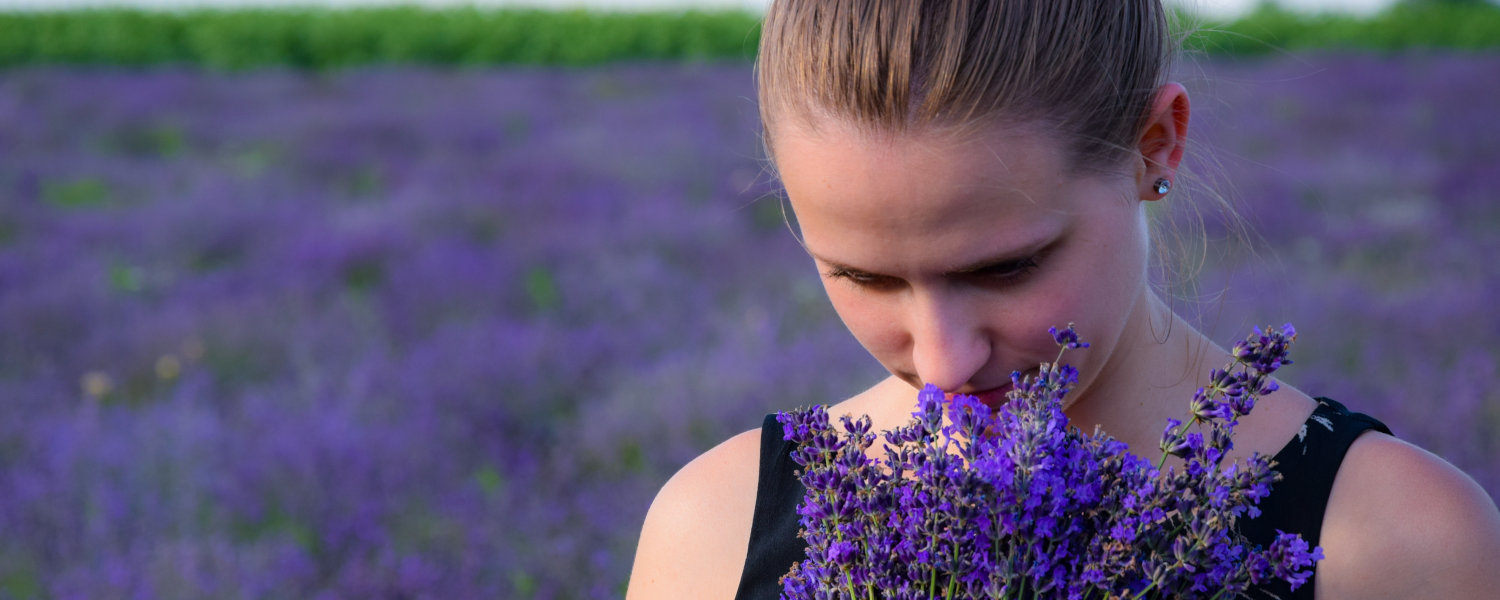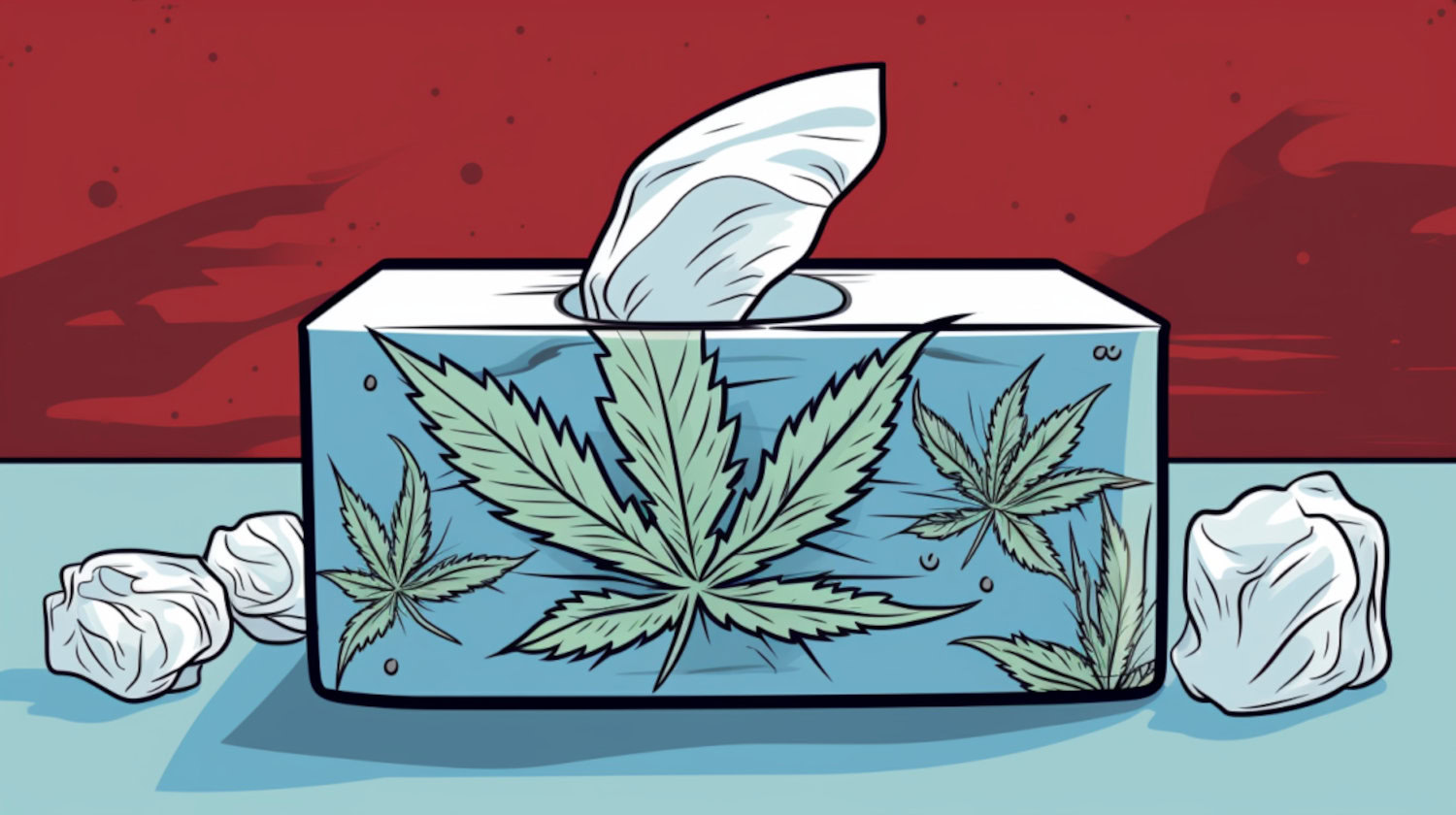Antihistamines, like Benadryl, are popular solutions for battling common seasonal allergy symptoms and colds. They can even relieve insomnia that may come with nasal congestion, headaches, and the other hassles associated with colds and allergies.
Because so many people rely on antihistamines to help with cold and allergy symptoms, many cannabis consumers are left wondering: Is it safe to use Benadryl and cannabis at the same time?
There isn’t much scientific research that directly addresses the question. Still, by looking into how cannabis and Benadryl interact with the body, it’s possible to conclude the potential risks and benefits of using both simultaneously.
What is Benadryl?
Antihistamines are a class of drugs commonly used to treat allergy symptoms. They work by blocking histamine, a chemical the immune system naturally produces. Too much histamine causes the body to overreact to common allergens, like pollen, causing allergy symptoms.
Benadryl is a brand name associated with diphenhydramine, a prevalent form of antihistamine behind several other big brand names, like Allergia-C, Nytol, and Unisom. Diphenhydramine is the active ingredient in Benadryl, making it the substance that could potentially interact with cannabis.
Like other antihistamines, diphenhydramine is typically taken to treat cold and allergy symptoms. Because drowsiness is a common side effect, it is sometimes also used as a sleep aid to treat insomnia. For this reason, many “nighttime” or “PM” versions of over-the-counter medications include diphenhydramine.
Combining Cannabis and Benadryl: What the Latest Research Says
Cannabis and Benadryl are both known to cause drowsiness, dizziness, and confusion in some individuals. When used together, these shared side effects may become more intense, especially in higher doses.
One hypothetical example is that combining Benadryl with certain strains rich in terpenes like myrcene or linalool could increase the sedative effects of both. This could impact alertness, coordination, or safety when performing everyday tasks.
Cannabis may also affect inflammation, which plays a role in some allergy symptoms. Cannabinoids like CBD and THC are still being studied for their potential anti-inflammatory effects.1,2,3 However, cannabis is not known to treat allergies directly. Any overlap in symptom relief may vary from person to person.
There’s also a small risk of cannabis allergy. While rare, symptoms can include nasal congestion, skin irritation, or more serious reactions. Using Benadryl might mask these signs, making it harder to identify a cannabis-related allergy.
Due to the unpredictable effects of combining Benadryl and cannabis (or CBD), it's best to speak with a healthcare provider if you're considering using them together.
References
- Peng J, Fan M, An C, Ni F, Huang W, Luo J. A narrative review of molecular mechanism and therapeutic effect of cannabidiol (CBD). Basic & Clinical Pharmacology & Toxicology. 2022;130(4):439-456. doi:https://doi.org/10.1111/bcpt.13710 ↩︎
- Walsh KB, McKinney AE, Holmes AE. Minor Cannabinoids: Biosynthesis, Molecular Pharmacology and Potential Therapeutic Uses. Frontiers in Pharmacology. 2021;12. doi:https://doi.org/10.3389/fphar.2021.777804 ↩︎
- Mlost J, Bryk M, Starowicz K. Cannabidiol for Pain Treatment: Focus on Pharmacology and Mechanism of Action. International Journal of Molecular Sciences. 2020; 21(22):8870. https://doi.org/10.3390/ijms21228870 ↩︎
The information in this article and any included images or charts are for educational purposes only. This information is neither a substitute for, nor does it replace, professional legal advice or medical advice, diagnosis, or treatment. If you have any concerns or questions about laws, regulations, or your health, you should always consult with an attorney, physician or other licensed professional.




